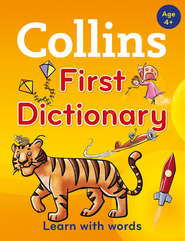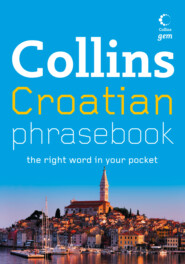По всем вопросам обращайтесь на: info@litportal.ru
(©) 2003-2025.
✖
Collins Primary Grammar, Punctuation and Spelling
Автор
Год написания книги
2019
Настройки чтения
Размер шрифта
Высота строк
Поля
• more difficult words (attraction, assuming)
• not using symbols instead of words
Formal and informal vocabulary
You should avoid informal and slang words in your written work, unless you are writing conversation. For example, use:
child (not kid)
man (not guy)
friend (not pal)
satisfactory (not OK)
angry (not ballistic)
wealthy (not minted)
relax (not chill)
impressive (not awesome)
very good (not well good)
Subjunctive
Another feature of formal language is the subjunctive. This is a form of verb that is sometimes used to show the possibility of something happening or the wish for it to happen. You use were instead of was:
If your father were here he would help you.
If I were rich I would buy a house like that.
Susan has always wished she were taller.
I wouldn’t do that if I were you.
Standard English and Non-standard English
Standard English is the form that you learn to read and write in school. It is the language that you read in newspapers and books, and hear on the television and radio news. It obeys the rules of English grammar and can be spoken in any accent. You should use this for anything you write in school and in official letters and emails. Non-standard English is the language that people often speak, where they don’t always follow the rules of grammar. You should avoid using this in writing.
Tense agreement
You must make sure that you do not jump between tenses when you are writing. If you start off in the past tense, keep to the past tense.
I was walking down the street when I saw my friend coming towards me.
(NOT I was walking down the street when I see my friend coming towards me.)
Subject and verb agreement
You must use the correct form of the verb for the subject of the sentence.
He was asleep when the fire broke out.
(NOT He were asleep when the fire broke out.)
We were happy to hear the news. (NOT We was happy to hear the news.)
Verb inflections
You must use the correct verb form for the past tense of irregular verbs. Some verbs (irregular verbs) have two different forms for the past tense, for example see. These are called the past tense and the past participle. The past tense is the one that makes the simple past of the verb. The past participle is the one you use with have.
I saw = the past tense
I have seen = the past participle
I saw him yesterday. (NOT I seen him yesterday.)
You should have gone to bed earlier. (NOT You should have went to bed earlier.)
He did his homework in school. (NOT He done his homework in school.)
Also, you should write I was sitting not I was sat:
I was sitting on the wall when Zain appeared.
(NOT I was sat on the wall when Zain appeared.)
Verb contractions
Some shortened forms of verbs are used in non-standard English. You should not use them in your writing:
I and me
You must not confuse I and me. You use I for the subject of the sentence, and me for the object.
Helen and I are going swimming. (NOT Helen and me are going swimming.)
Kevin threw the water balloon at Linda and me.
(NOT Kevin threw the water balloon at Linda and I.)
If you are not sure whether to use I or me in a sentence like this, take the other person out of the sentence and see if it still makes sense:
Helen and I are going swimming.
> I am going swimming. (NOT Me is going swimming.)











